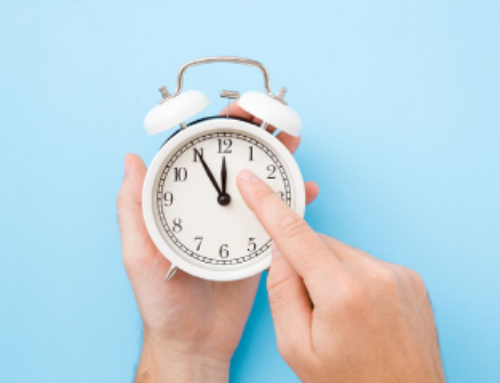While the “fall back” time change provides an extra hour of sleep, it can also have a negative impact on your circadian rhythm. There are ways to prepare and minimize the effects on your body.
The end of daylight savings time on Sunday, November 4, means more than just turning your clocks back one hour. If you’re not careful, that one hour difference can throw off your circadian rhythms, or your internal clock that helps to regulate your 24-hour sleep-wake cycle.
Because the circadian clock can get out of rhythm fairly easily, it’s important to follow good sleep habits in general throughout the year, according to Dr. William C. Kohler, Medical Director of the Florida Sleep Institute in Spring Hill, Fla.
“When it comes to easing your fall back transition, you can change your sleep habits by 10-15 minutes the week before the time change,” Dr. Kohler suggests.
During the first few days after setting the clocks back one hour, you will also notice that it’s bright outside in the mornings and becomes dark at an earlier time each evening.
It’s helpful to resynchronize to the new light-dark period by trying to capture as much sunlight as possible first thing in the morning, according to Dr. Michael Decker, Endowed Chair of the Byrdine F. Lewis School of Nursing, College of Health and Human Sciences, Georgia State University and associate professor of nursing and neural science.
“So, unless you’re driving, take off your sunglasses,” he says. “This is similar to the strategy used to reset your circadian rhythms when traveling across time zones.
In general, the fall time change is an easier adjustment than the spring time change; however, it can still have adverse effects.
“In either case, most people adapt to the change in about 3-5 days”, says Dr. Decker. “In the fall, we gain an extra hour of sleep, whereas in the spring, we lose that hour. Being a sleep-restricted society, the loss of one more hour of sleep in the spring is harder to accommodate than gaining an hour in the fall. Another parallel is travel across time zones – we find it easier to travel east to west, rather than west to east.”
One of the biggest mistakes that people make regarding the fall time change is staying up later at night thinking that they’re going to get an extra hour of sleep, adds Dr. Kohler.
In addition to adjusting your sleep schedule by 10-15 minutes the week before and getting plenty of sunlight, Dr. Kohler also recommends avoiding alcohol, taking a brief 15-20 minute nap if you feel yourself getting tired and avoid consuming caffeine close to bedtime.





